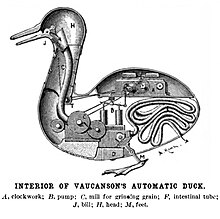
Reductionism (from lat. Reductio - return, bringing back) is a methodological principle according to which complex phenomena can be fully explained with the help of laws inherent in simpler phenomena (for example, sociological phenomena are explained by biological or economic laws).
Reductionism absolutizes the principle of reduction (reducing the complex to the simple and the higher to the lower), ignoring the appearance of emergent properties in systems of higher levels of organization. Although, as such, justified reduction can be fruitful (an example is a planetary model of an atom ).
Reductionism as a philosophical approach historically supplanted holism - a system of views that was not singled out separately at that time, but dominated European thinking until the 17th century . The first consistent exponent of the reductionist approach to the world, which continued the tradition of the ancient philosopher Democritus in modern times, was Rene Descartes ( 1596 - 1650 ). Here is an example of his reasoning: “... death never occurs through the fault of the soul, but solely because any of the main parts of the body are destroyed. ... the body of a living person is also different from the body of a dead one, like a watch or another machine (that is, a machine that moves by itself) when they are assembled and when they have a material condition for the movements for which they are intended ... from the same watch or the same machine when they are broken and when the condition for their movement is absent. "
In sociology, reductionism exists in the form of methodological naturalism and mechanism . In modern Western philosophy, reductionism has again lost ground to holism, the concept of which was introduced at a new level by J. Smuts (1870-1950) [1] . He quoted the words from Aristotle 's Metaphysics , "the whole is greater than the sum of its parts."
As noted by the Soviet and Russian philosopher V. S. Shvyrev , logical positivists had to abandon their phenomenalistic and empirical ideas about the nature of scientific knowledge , which suggested the possibility of exhaustive reduction (reduction) of theoretical terms and sentences to terms and sentences of the language of “observation”, and recognize the fact the existence of a theoretical level of scientific knowledge that cannot be reduced to empirical knowledge or its combinations [2] .
Notes
- ↑ Holism / Blauberg I.V. // Great Soviet Encyclopedia : [in 30 vol.] / Ch. ed. A.M. Prokhorov . - 3rd ed. - M .: Soviet Encyclopedia, 1969-1978.
- ↑ Rozin V.M. Background and features of ancient culture . M .: IF RAS , 2004.
Literature
- Reductionism / V. I. Arshinov // New Philosophical Encyclopedia : in 4 volumes / before. scientific ed. Council V. S. Styopin . - 2nd ed., Rev. and add. - M .: Thought , 2010 .-- 2816 p.